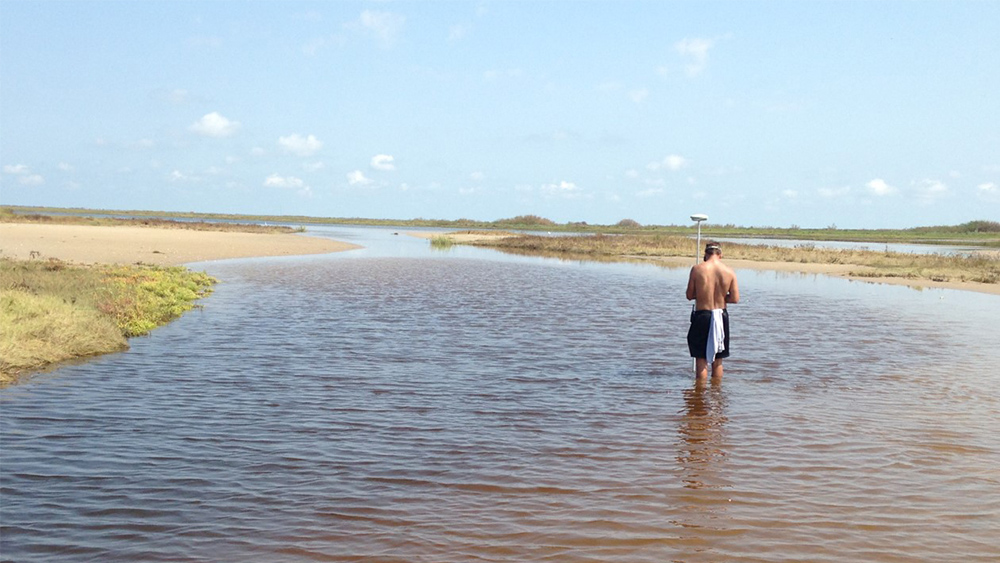
After becoming captivated with the Texas A&M University at Galveston campus, William “Mick” Prouse decided to pursue a degree in ocean engineering, with a concentration in coastal studies. Prouse strives to raise the bar in both his academics and the field of ocean engineering.
“I came to Texas A&M Galveston wishing to transfer to College Station, but involvement in student life and various organizations changed that. I immediately felt at home,” Prouse said. “The small campus and family atmosphere has definitely encouraged me to grow into my own.”
Prouse always knew he wanted to study engineering, but it was not until he dived into oceanic topics that he found his passion.
“I fell in love with the Galveston campus and decided to give ocean engineering a shot,” Prouse said. “After becoming involved in research I truly gained a passion for my studies.”
Prouse works under the guidance of Katherine Anarde, a Ph.D. student at Rice University, and fellow collaborator in the Coastal Engineering Laboratory research group. The research group is spearheaded by Dr. Jens Figlus, an assistant professor in the Department of Ocean Engineering at Texas A&M University. Prouse’s project addresses removing errors associated with digital elevations models (DEM) in environments with dense vegetation shielding the substrate.
“The project came to fruition as a sub-study of my mentor Katherine Anarde’s thesis,” Prouse said. “We have a symbiotic relationship where I’m granted the opportunity to research my personal interests under her guidance, while also aiding her thesis.”
DEMs created using Unmanned Aerial Systems (UAS) allow researchers to quickly and easily survey large plots of land, and with consecutive DEMs researchers are able to track the morphological changes over a period of time. Researchers are still fine-tuning their processes to maximize the accuracy of this UAS DEM data, which allows them to rapidly map larger and more environmentally diverse ecosystems with smaller ranges of uncertainty in the data.
“I initially began studying the subject of vegetation-induced DEM inaccuracies the summer after my freshman year,” Prouse said. “That summer, Katherine tasked me with learning how to operate a drone and create aerial survey maps. DEM measurement errors occur because photographic sensors lack the ability to see through the vegetation, thus creating a false reading from the desired bare earth elevation.”
The overarching goal of his work is to allow for the quick, yet accurate mapping of topographic transects to study the impacts of storm events on our barrier islands. Barrier islands, comprising of 85 percent of the United States coastline, are the first line of defense against surge and wave attacks from extreme storm events. By understanding the effects of storms on barrier islands and recording the hydrodynamics during these events, we can offer unique engineering solutions to better guard against the effects of hurricanes with a minimal footprint on our national scenery.
“I enjoy the problem-solving aspect of this project,” Prouse remarked. “Completing research goals reminds me of solving a puzzle, and finishing is extremely rewarding when the work is successful.”
Prouse particularly enjoys studying structural design, hydrodynamics and wave mechanics as they closely relate to his research and are highly challenging fields of study.
“My dream job is to be a coastal engineering consultant specializing in flood prevention programs all over the world,” said Prouse. “I would first like to continue my research and further my expertise as a graduate student.”
Prouse was recently inducted as an Undergraduate Research Scholar and an Aggies Commit to Excellence Scholar. Additionally, he has been named a fellow of the Texas Institute of Oceanography and awarded a Texas Sea Grant.